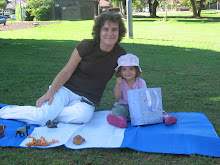Here's an attempt at a summary
School effectiveness research and School Improvement Research are lacking - Organisational Theory (the author's bias) takes into account Power exchanges within a school which will result in greater effectiveness when looking at how to change a school.
Structures
- Mechanistic views of organisations see structures as fixed and static, changeable only by decisions of those that control them.
- Organic Views see structures as capable of developing and changing. This is because Membership of organisations change, Purposes can change, What is externally defined as legitimate can change.
Structures can be seen as dynamic reflecting the distribution of power.
There are 3 types of structures:
- Physical - eg. buildings
- Work - decisions taken that reflect how the work is done eg. Division into faculties etc
- Task - What the people within the organisation do
Structures might look rigid but their meaning to individuals within the organisation lies in the way these structures define relationships with colleagues and the areas within which the individual can make decisions. A crucial part of these relations is the power that each individual brings to relationships within the structure.
Power depends on 2 things:
- How Central the individual is to the issue being considered
- How much freedom the individual has in deciding how to act in response to decisions that are taken
Young describes what he calls an "assumptive world" - In assessing a situation we come to an understanding of it based on our cognitive knowledge of it, our feelings about it, a sense of being required to take some action. This is another Dynamic element within a structure,
Organisational Culture:
Can be "Differentiated" ( usually has a loosely coupled structure), or "Integrative" ( with stronger lines of accountability and control and more emphasis on uniformity)
Cultures shape how individuals act within a structure, ie) what is seen as legitimate action in a given setting
POWER - Hegemony and Discipline
Hegemony - Domination and control rest on both coercion and consent.
Discipline (Foucault) Power is derived from the idea that the person in power has the potential to observe and thus has the ability discipline and punish. Power is not seen as a negative
It is through the day to day working out of little power relations that an individual's 'assumptive world' is formed
POWER AND THE CREATION OF ORGANISATIONAL CULTURE
Schein (1992) says that the norms and rules that govern one's behaviours in an organisation is created initially by the fonder who gathers together like minded people. Culture is the pattern of rules and norms that come from the basic understanding of the work that is done,. 'cultural players' deploy power resources in order to maintain and create the organisational culture.
The greater the difference in resources between the two parties to an exchange, the more likely it is that one will be able to influence the other to act in a certain way.
Resources can be:
- Physical - ie force
- Economic eg) Salary or the means of doing a job.
- Knowledge - administrative or technical
- Normative - access to values, ideas, friendship, reputation
When there is a disparity in resources, one person can achieve compliance from the other. It is easier to achieve compliance when the disparity is great.
Cognitive compliance - persuading the person that what you are requiring is correct
Instrumental Compliance - calculation of benefits and advantages.
Organisations are collections of individual members. How individuals relate within these organisations will depend on, the power resources each party has and the degree to which these are seen as valid. Economic resources are legitimised by structural factors whilst other forms are legitimised by cultural factors.
IF YOU WANT TO ACHIEVE CHANGE IN A SCHOOL YOU MUST LOOK BEYOND STRUCTURE INTO ORGANISATIONAL CULTURE. THE POWER DIMENSION PROVIDES A WAY TO DO THIS. The question that needs to be asked is: What sort of power resources will get staff to commit themselves to reforms, rather than merely complying. *** Note this is important for assignment 1
Thank god thats over!!!!


